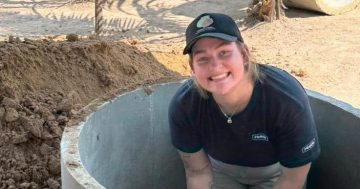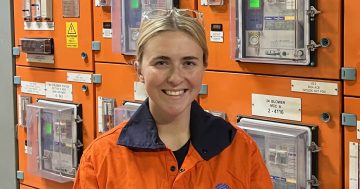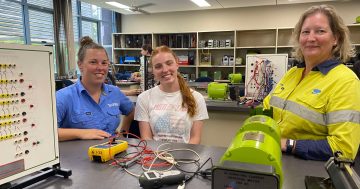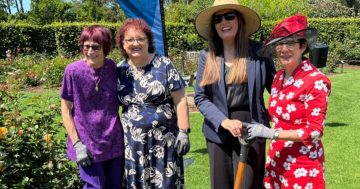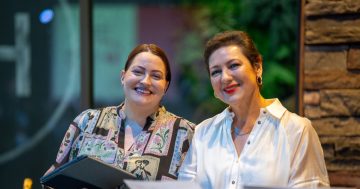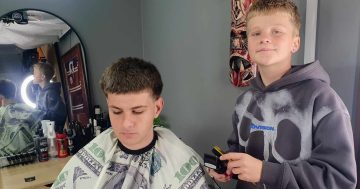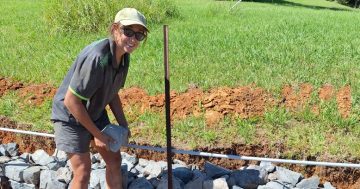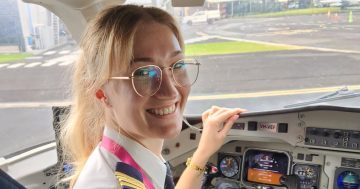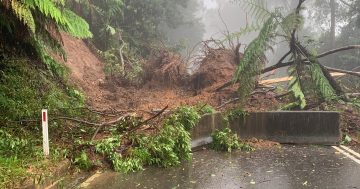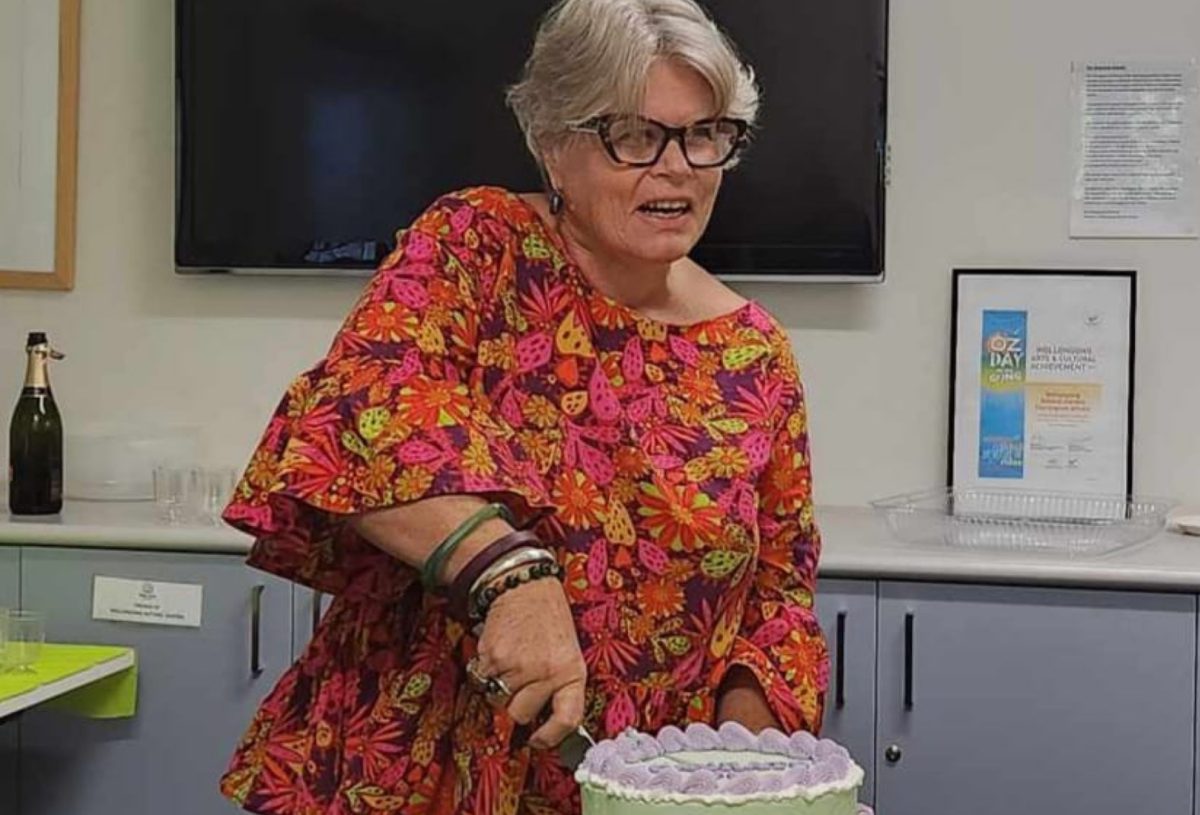
Fiona Schewring started SALT (Supporting And Linking Tradeswomen) in Wollongong. Photo: Supplied.
It was a conference in America where 600 tradeswomen spoke of picking up tools from a young age that led then tradie and TAFE trades teacher Fiona Schewring to start SALT (Supporting And Linking Tradeswomen) in Wollongong in 2009.
Today, SALT has done 605 workshops for women and children, reaching every Australian state, and leading to Fiona being recognised with a Medal of the Order of Australia (OAM) in this year’s King’s Birthday Honours list.
Fiona, who lives in Sydney but spent years working in the Illawarra, started the non-profit organisation in Wollongong to change the status quo for working tradeswomen and encourage girls and women to consider a career in a trade.
Fiona was surprised when she found herself working in a trade as a painter.
“I was a single mum with five small kids, and I met a guy who became my second partner and he was in trade,” she said.
With five kids and childcare, Fiona was struggling to get work and so he suggested she work with him.
“He had no issues with different genders in the trade, which was unusual at the time,” she said.
“I discovered there was nothing I couldn’t do and I took to it like a duck to water.”
Before starting SALT, she had already delivered a Work Opportunities for Women course through TAFE NSW in Wollongong, aimed at bringing women back into education after having families.
She said that immediately, there were women who wanted to go into a trade, but there was huge resistance within the industry.
“In the end, there was quite a core group of women who did succeed in going into the trade courses and who qualified, and who set up their own businesses,” she said.
“That’s where I first realised there was more than me had an appetite for this.
“Then I started thinking, ‘Why are there so few women in apprenticeships?’”
While still teaching, Fiona started researching the barriers to women entering the often male-dominated industries, turning that into a booklet, before further research in 2009 led to her gaining a National Association of Women in Construction International Women’s Day Scholarship.
She used the scholarship for a month-long study program in the US, looking at how women entered the trade workforce and the underlying conditions which helped them succeed.
“I can remember sitting in a conference with 600 other trades women and that just blew my mind,” she said.
“One of the factors that came out from my research was that over 50 per cent have been taught how to use tools between the ages of five and 12.
“That struck me as something significant, because there was lots of pathways in America for women to get into trades and I do think that is crucial.”
Once home, she decided to do something about it, despite her heart sinking at the prospect of the massive amount of work ahead of her.
“In the end, I felt if you don’t do it, who’s going to do it. I’m not anything other than someone who’s persistent,” she said, recognising a trait that stemmed from dealing with dyslexia as a child.
“There was only seven of us when we started in Wollongong and quite a few are still involved.
“We started meeting, trying to connect and support each other.
“The one thing I didn’t want to be was just a talkfest. For me, it was about doing something that changed people and society.”
She said she and another founding member determined if one of the big factors was learning tools at a young age, they should teach women and children how to use basic tools.
“That’s how we began the workshops,” she said.
“We still do one of the early projects. It’s been so successful because it teaches 13 different tools that are the basis of almost every trade and the basis of what is useful in the home for anyone.”
She said the program was predominantly for students in Years 5 and upwards, but they had even taught a course on security to help women understand how to keep themselves safe by changing locks.
The inaugural SALT Tradeswomen Australia Conference in 2016 was also held in Wollongong, attracting people from as far as the US.
“I’ve just come back from the Kimberleys, and we’ve been working in schools that are on the main road, but we’ve also been going down dirt roads to schools in remote Indigenous communities,” she said.
“It doesn’t matter where we go … the workshop has the same effect.”
Fiona said once a student started the workshop, they “hooked in”, admitting it was incredibly empowering as a tradesperson to see the extraordinary shift that took place in a student.
She said if students determined they were interested in a career in the trades, they had mentors that helped provide pathways beyond the workshop.
“Trades don’t have a gender,” she said.
“That’s basically been our core phrase ever since, because that’s what we’re aiming towards.”
She thanked Rotary and PCYC in Wollongong for their years of support and was now hoping to work with other Illawarra organisations.
“We feel our roots in Wollongong are perfect, because it’s an amazing industrial area and has so much industry and so much opportunity,” she said.
Learn more about SALT.









